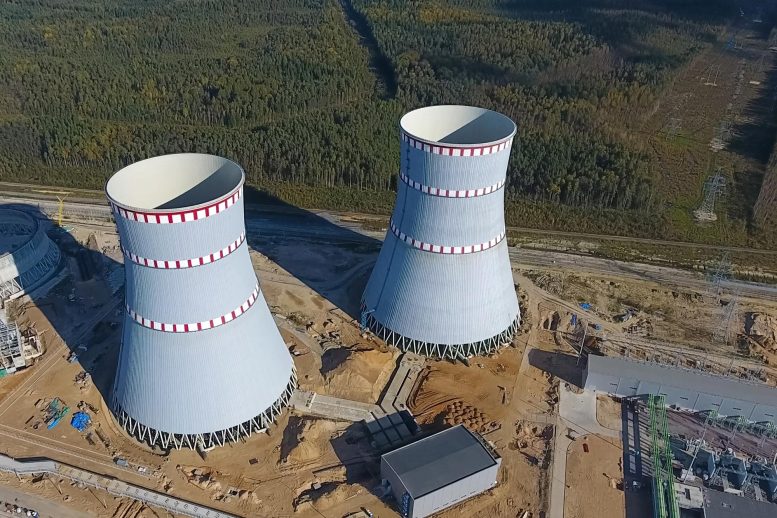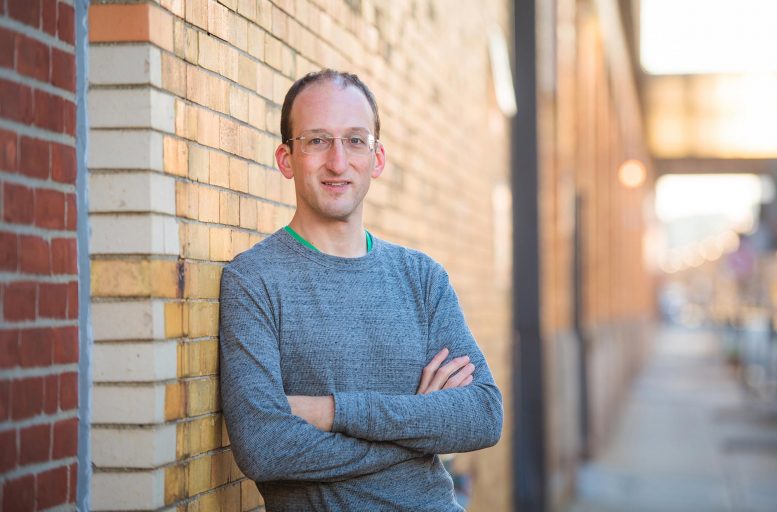
A longstanding interest in radiation’s effects on metals has drawn Michael Short into new areas such as nuclear security and microreactors.
Michael Short came to
Last year — after collecting four MIT degrees and joining the faculty of the Department of Nuclear Science and Engineering (NSE) in 2013 — he was promoted to the status of tenured associate professor.
Short’s enthusiasm for MIT began early in high school when he attended weekend programs that were mainly taught by undergraduates. “It was a program filled with my kind of people,” he recalls. “My high school was very good, but this was at a different level — at the level I was seeking and hoping to achieve. I felt more at home here than I did in my hometown, and the Saturdays at MIT were the highlight of my week.” He loved his four-year experience as an MIT undergraduate, including the research he carried out in the Uhlig Corrosion Laboratory, and he wasn’t ready for it to end.

A longstanding interest in radiation’s effects on metals has drawn Michael Short into new areas such as nuclear security and microreactors. Credit: Photograph by Gretchen Ertl
After graduating in 2005 with two BS degrees (one in NSE and another in materials science and engineering), he took on some computer programming jobs and worked half time in the Uhlig lab under the supervision of Ronald Ballinger, a professor in both NSE and the Department of Materials Science and Engineering. Short soon realized that computer programming was not for him, and he started graduate studies with Ballinger as his advisor, earning a master’s and a PhD in nuclear science and engineering in 2010.
Even as an undergraduate, Short was convinced that nuclear power was essential to our nation’s (and the world’s) energy future, especially in light of the urgent need to move toward carbon-free sources of power. During his first year, he was told by Ballinger that the main challenge confronting nuclear power was to find materials, and metals in particular, that could last long enough in the face of radiation and the chemically destructive effects of corrosion.
Those words, persuasively stated, led him to his double major. “Materials and radiation damage have been at the core of my research ever since,” Short says. “Remarkably, the stuff I started studying in my first year of college is what I do today, though I’ve extended this work in many directions.”
Corrosion has proven to be an unexpectedly rich subject. “The traditional view is to expose metals to various things and see what happens — ‘cook and look,’ as it’s called,” he says. “A lot of folks view it that way, but it’s actually much more complex. In fact, some members of our own faculty don’t want to touch corrosion because it’s too complicated, too dirty. But that’s what I like about it.”
In a 2020 paper published in Nature Communications, Short, his student Weiyue Zhou, and other colleagues made a surprising discovery. “Most people think radiation is bad and makes everything worse, but that’s not always the case,” Short maintains. His team found a specific set of conditions under which a metal (a nickel-chromium